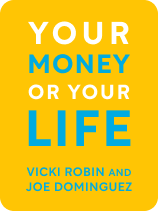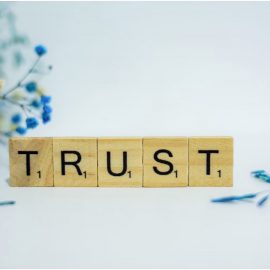

This article is an excerpt from the Shortform book guide to "Your Money or Your Life" by Vicki Robin and Joe Dominguez. Shortform has the world's best summaries and analyses of books you should be reading.
Like this article? Sign up for a free trial here .
Have you dreamed of becoming financially independent? Are you already there and wondering, What now?
More and more people are becoming financially independent, and they worked hard to achieve this freedom. But the work doesn’t stop there. Find out the myth and reality of becoming financially independent—and how to handle stress, work, and expenses in this new life.
Read on to learn how to navigate life once you become financially independent.
The Myth and Reality of Becoming Financially Independent
You need to understand what financial independence is in order to work toward it.
When you hear the term, “financial independence,” you may think of becoming rich and the myriad of luxuries that would afford, like endless, swanky vacations. But being “rich” is a relative term—you can’t feel rich unless other people have less. Striving to become rich isn’t a realistic goal and plays into the “more is better” myth.
Becoming financially independent means you have the money you need to survive, plus more for the things you deem important for your life. This is the definition of “enough.” It will be different from person to person.
Aside from learning what your “enough” looks like, becoming financially independent means:
- Spending money based on your choices, not at the whims of your circumstances.
- Interrupting your assumptions about how you should or shouldn’t think about money.
- Understanding your finances so that you feel confident.
- Acknowledging the emotions you experience when thinking about money—anger, guilt—and moving beyond to make choices that fit your values.
Navigating Financial Independence
Even after you become financially independent, you’ll still need to navigate stress, work, and expenses.
Stress
Stress comes in many forms. You may encounter three issues:
- wondering about how you’ll spend your time
- emotional swings—wanting to dabble in many experiences
- worrying if you’ll have enough money
Here’s how to navigate this big change:
- Before the crossover point, try spending your weekends doing some of the things you plan to do in your free time. That way, you’ll have a starting point for what to do.
- When you do reach crossover, start to enjoy some of things that you promised yourself you’d do once you’d become financially independent. Examples include sleeping, camping, or volunteering.
Financially independent people often discover that their expenses decrease even more during FI because they don’t need to pay for work-related expenses.
Work
Financial independence means that you don’t have to work for money. However, that is just one option available to you. Not everyone decides to stop doing paid work when they reach FI. If you choose to work, FI gives you flexibility to decide when you work and what kind of work you do.
Here are some examples of what work might look like:
Example 1: You work for a few years, save, and invest, and then leave the workforce for months to years to go back to school, raise children, or take a long vacation.
Example 2: You work a summer job and have the rest of the year off.
Example 3: You use passive income to supplement income from part-time side hustles.
Example 4: You work full time doing work you’re passionate about, but feel no pressure to make money because of your passive income.
Expenses
Financial independence doesn’t mean that you won’t periodically face large expenses. For example, your car may eventually need to be replaced.
In addition to your Cushion, you can develop a Cache—a readily available source of savings to put toward large expenses. Even if you’re not working full-time anymore, you can still continue to build up savings.
This money may come from:
- work-related expenses you’re no longer paying
- paying fewer taxes
- taking on side hustles
- receiving gifts or inheritances
Now you should have more confidence to navigate life once you’ve become financially independent.

———End of Preview———
Like what you just read? Read the rest of the world's best book summary and analysis of Vicki Robin and Joe Dominguez's "Your Money or Your Life" at Shortform .
Here's what you'll find in our full Your Money or Your Life summary :
- The 9 steps to reach financial independence
- How to change your entire relationship with money and live a more meaningful life
- How to align your spending habits with your values, purpose, and dreams






